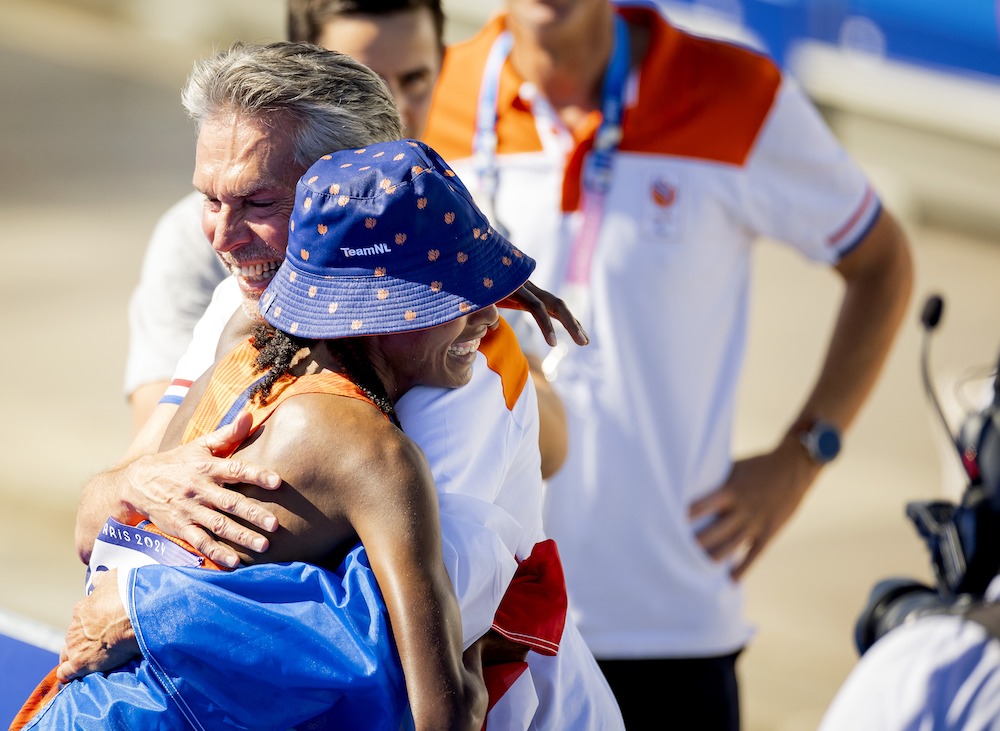A record Olympics for the Dutch, but what happens now?

The Netherlands may have had its best ever Olympics, finishing sixth in the medals table overall with 34 gold, silver and bronze, but the country’s sports chief says he is beginning to worry about the future.
André Cats, from the Dutch sports and Olympics organisation NOC*NSF, told the AD in an interview that the new government’s plans to slash spending on sport are concerning.
“If we want to continue like this, we need budget,” he said. “The last time that we got substantial funding was six years ago, and in those six years, every euro is worth 20%, 30% less. The cost of plane tickets, hotel rooms and salaries have all risen and funding needs to do the same. If we want to continue participating, we need more budget.”
Cats met both prime minister Dick Schoof and junior sports minister Vincent Karremans during the Olympics and told them both his “very serious message”.
“It is up to me to tell them, and others, politicians, to do the same,” he said. “We have to all continue to see the value of sport, from gym lessons for toddlers to top-level competition. And the top-level budget is my biggest worry.”
According to the NOC*NSF, Dutch sports clubs will lose €45 million in financial support a year if the government presses ahead with increasing value-added tax on sports and on gambling.
The bulk of the spending cuts are likely to come from the increased tax on gambling which is set to go up by 7.3 percentage points. Lotteries are required by law to hand over some of their proceeds to community projects, but experts suggest the tax increase will cut lottery earnings and therefore donations, by €12.5 million a year.
Lottery organisation Loterij 77, for example, currently supports 25,000 sports clubs nationwide.
The increase in btw on sports from 9% to 21% will also have an impact across the board, as will cuts in local authority spending, the NOC*NSF says.
Premier Dick Schoof (@MinPres) is groot fan van de Olympische Spelen. Als fanatiek hardloper is Sifan Hassan zelfs een voorbeeld voor hem. Maar is het bijwonen van deze Olympische Spelen niet wat hypocriet wanneer het kabinet wil bezuinigen op de sport? #HUMBERTO vraagt het hem. pic.twitter.com/R9W1x9NxAr
— RTL Talkshow (@rtltalkshow) August 10, 2024
Schoof told television chat show Humberto on Saturday evening that the cabinet is being forced to make choices. “We have not announced any cuts in spending on sport. We are planning some measures which could affect it,” he said.
“But it is still unclear what the impact will be. The prime minister has said he will look carefully at what needs topping up and do so where necessary… but the cabinet has less budget than in previous years and we can’t take any irresponsible financial risks.”
Top-level
Since 1990 the Netherlands has invested heavily in top-level sport and the policy has paid dividends.
“You can broadly say that the size of the population and the size of the economy explain 50% of a country’s sporting success at the top level,” Maarten van Bottenburg, professor of public administration at Utrecht University told AD.nl.
“On that basis the Netherlands shouldn’t be anywhere near the top 10. But we systematically rank higher, and that’s the result of our policies.”
Around 550 top athletes receive a regular income from the state, while facilities such as the multi-sport training complex at Papendal have been developed in the last 20 years.
The next Olympics take place in four years time in Los Angeles.
Thank you for donating to DutchNews.nl.
We could not provide the Dutch News service, and keep it free of charge, without the generous support of our readers. Your donations allow us to report on issues you tell us matter, and provide you with a summary of the most important Dutch news each day.
Make a donation